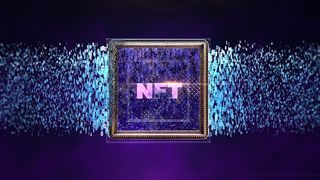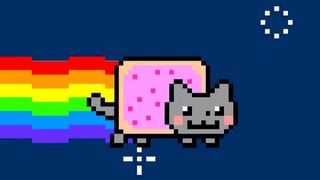What is an NFT? Non-fungible tokens explained, and why you shouldn’t dismiss this fad
What’s next, supercalifragible tokens?

NFT, or non-fungible token, has become 2021’s ‘blockchain’, a word you’ve never heard of before that is suddenly everywhere. Be it Twitter CEO Jack Dorsey auctioning his first tweet, or the Kings of Leon selling their latest album, as one, NFTs are everywhere. But what is an NFT?
Some see it as the latest fad, a new crypto-esque bubble that’s guaranteed to pop eventually, while others think NFTs could have an important role in the future of digital art.
We can’t say for certain which it will be for now, but read on to discover everything you need to know about NFTs, and our insight into why they’re worth watching.
- More spent in January on NFTs than in the whole of 2020
- Atari is making a comeback as a crypto casino
- Best cryptocurrencies in 2021: Bitcoin, Ether, and more

What is an NFT?
As we've mentioned, ‘NFT’ stands for non-fungible token, but what does that mean?
If something is fungible that means it isn’t unique, it’s a commodity. Dollar bills are fungible, two bills of the same value are for all intents and purposes identical. Apples are fungible, your box of cornflakes is fungible, your PS5 is fungible.
However, if your PS5 has been turned into artwork by drawing on it or adding decoration – as you might have seen online – then it has become something non-fungible.
I just wanted to say thank you for the overwhelming amount of love and support for my TLOU PS5 across all media channels 🖤#TheLastofUsPartII #thelastofus #naughtydog #playstation #ps5 #PlayStation5 @Neil_Druckmann @Naughty_Dog @PlayStationUK pic.twitter.com/wkbLUtjp0RFebruary 18, 2021
Think of the Mona Lisa. You could take a photo of it and hang it on your wall but it wouldn’t be the same – or have the same value – as the Mona Lisa that resides in the Louvre. Much like other original paintings, the Mona Lisa is non-fungible, in that it's unique.
Get daily insight, inspiration and deals in your inbox
Get the hottest deals available in your inbox plus news, reviews, opinion, analysis and more from the TechRadar team.
A non-fungible token is a digital interpretation of that. Someone might have a copy of the same digital artwork, but it’s not the original file.
So are NFTs pointless?
It’s certainly an odd idea to wrap your head around. When something is digital, the original file and a copy of it are seemingly identical. For some people though there is a ‘specialness’ to that original file that makes it unique.
While this might seem like those people are imposing an imaginary value on it, it’s not that different to the Mona Lisa example in many ways. Fundamentally the Mona Lisa painting and a copy of it are of the same image; it's just that people have imposed qualities on the original that give it value.
With NFTs it’s that same idea. But while you might not be convinced about them just yet, going forward there may be more tangible benefits to NFT ownership.
What’s the future of NFTs?
Here things get tricky. Some see NFTs as just the latest fad, which like the ‘GameStonks’ bubble will pop eventually and leave many winners and losers in its wake. However, there are some interesting ideas that could mean NFTs survive.
One example could see content creators reward their biggest fans based on NFT ownership. Potentially creators could host a stream or Q&A where only owners of certain NFTs – or a certain number of the creator’s NFTs – can take part.
You could then see people selling their collection of NFTs if they decide to move on from a certain artist. Think of it like a digital version of selling old albums: the seller gets their investment back, and a new fan can catch up with everything that’s come before.
With reselling there’s also the option for NFT creators to stipulate that if an NFT is resold, they get a cut. It’s common for art to become more valuable over time, and this would give artists the opportunity to benefit from that increase in value.
None of this guarantees that NFTs won’t still just be a fad, but they leave open a range of interesting possibilities that mean they're certainly worth keeping an eye on.
- Check out the best Bitcoin wallets in 2021

Hamish is a Senior Staff Writer for TechRadar and you’ll see his name appearing on articles across nearly every topic on the site from smart home deals to speaker reviews to graphics card news and everything in between. He uses his broad range of knowledge to help explain the latest gadgets and if they’re a must-buy or a fad fueled by hype. Though his specialty is writing about everything going on in the world of virtual reality and augmented reality.
Most Popular

